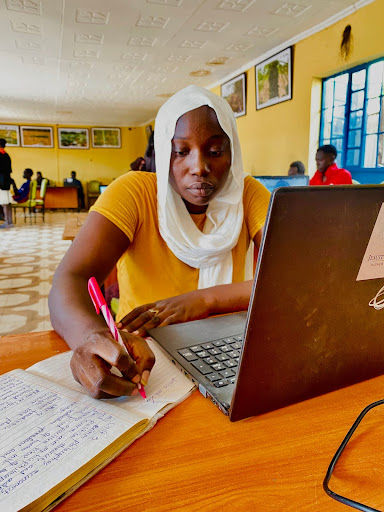THE IMPACT OF UNEMPLOYMENT ON YOUTHS MENTAL HEALTH.
- Aug 29, 2021
- 3 min read
Job loss and lack of employment opportunities are some of the reasons why mental health conditions in refugees are escalating. The impact of unemployment is not only financial but also psychological, and the effects are felt globally. When viewed psychologically, joblessness is responsible for the development of negative emotions and thoughts within a person. Negative psychological effects such as anxiety, depression, stress, and suicidal thoughts eventually lead to overall poor health (Holland 2012). As a result, a country’s productivity plummets due to physical inactivity.
Several studies have been conducted worldwide to prove whether unemployment can affect mental and physical health. For example research by UNVL (Jennifer R. 2011) and a thesis report by the University of South Africa (Mabela 2012) explains how unemployment can be the underlying cause of mental health illness within the population. Their research proves mental health conditions are higher in unemployed persons than in employed counterparts.
They found out that those without a source of income were more susceptible to depression, stress, anxiety, drug use and alcohol, mood disorders, and physical ailments, than the employed group. Also, due to the link between joblessness and poverty, their study subjects could not access proper medical care. Others delayed their medical appointments due to financial constraints, thus worsening their mental health well-being.
In Kakuma, 43.7% of the registered refugees and asylum seekers are between the ages of 18-59 years old. A large portion of the refugee community earns a living through incentive work, minor trades, cash remittances, and small to medium businesses (United Nations High Commissioner for Refugees 2020).
Nonetheless, formal employment and movement of refugees within Kakuma and other camps are legally restricted by Kenya’s encampment policy. This policy denies refugees formal employment within the country and rules out earning a salary like the Kenyan residents. In order for refugees to travel outside their camps, they need a permit called The Movement Pass, which at times, is difficult to obtain and may take weeks to process.
Unfortunately, only a few refugees have legal documents that allow them to apply for this pass (Stories 2019). This means undocumented refugee youths within the camp have limited employment opportunities. They remain tethered within the region and forced to rely on donors or neighbors for basic needs. Worst of all, they have to survive the harsh conditions of the camp without a good source of income.
Because of scarce jobs within the camp, together with strict movement policies, refugee youths are thrown into a state of hopelessness and idleness (Aduwa 2015). These factors provide a fertile ground for mental health conditions to thrive and destroy their hope for a better future. In turn, the mental health conditions propagate the negative cycle of poverty and social segregation within refugee camps. Poverty acts as a catalyst in malnutrition, social exclusion, and poor health care. Without employment, refugee youths cannot access professional mental health care services or improve their living conditions. Furthermore, poverty promotes risky behavior among refugee youth such as unsafe sex, prostitution, and violence as a means to earn a living (United Nations 2014).
RAI is combating the unemployment factor in the Kakuma refugee camp by offering vocational training to youths. Our Vocational training equips refugee youths with skills and entrepreneurial know-how of starting and managing a business. With skills and formal training in digital courses, refugee youths are conversant with current technology and can earn through online jobs. They can also start small businesses and trade stations to support themselves without solely depending on the donor as evidenced by our Annual Report 2019. By keeping the refugee youths busy and engaged with a profitable economic activity, anxiety, stress, hopelessness, and depression are kept at bay.
Although employment is not the only solution to mental health illness among refugee youths, having a source of income does ease the pressure to be productive in the community.
Sources:
Aduwa, Tom Mboya. Effects of Refugees' Encampment Policy on Livelihoods of Refugee Youths in Kakuma Refugee Camp Kenya. Masters Thesis, Nairobi: University of Nairobi, 2015, 12-33, .
Holland, Kelly. “Effects of Unemployment on Health and Mental Health Based on Gender.” Sophia, the St. Catherine University repository website. May 2012. https://sophia.stkate.edu/msw_papers/38 (accessed July 7, 2020).
Jennifer R., Sheniz Moonie, and Timothy J. Bungum. “The Impact of Unemployment on Mental and Physical Health, Access to Health Care, and Health Risk Behaviours.” Edited by E. A. Al-Faris. International Scholarly Research Network (www.hindawi.com/journals/isrn/2012/483432) 2012 (December 2011): 7.
Mabela, Constance Sarah. Mental Well-Being Among the Unemployed: The Role of Government Intervention. PhD Thesis, Pretoria: uir.unisa.ac.za, 2012.
“The many faces of mental health in Kenya.” www.ilakenya.org. 28 October 2019. https://ilakenya.org/the-many-faces-of-mental-health-in-kenya/ (accessed July 2, 2020).
United Nations High Commissioner for Refugees. Livelihoods. 2020. https://www.unhcr.org/ke/livelihoods (accessed July 4, 2020).
United Nations. “Social Inclusion of Youth with Mental Health Conditions.” United Nations. 21 June 2014. http://www.un.org/development/desa/youth/publications/2014/06/mental-health-matters-social-inclusion-of-youth-with-mental-health-condition/ (accessed July 3, 2020).



Comments